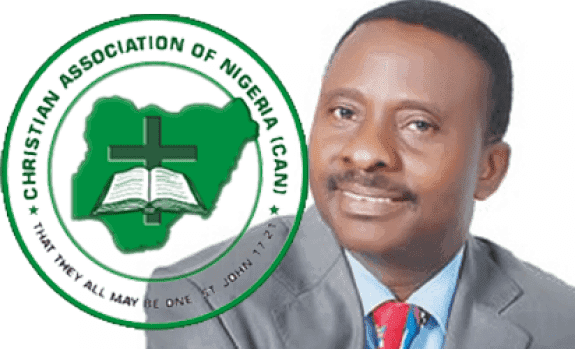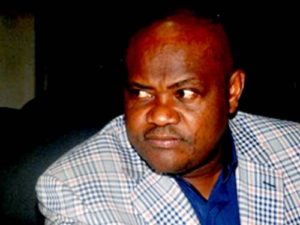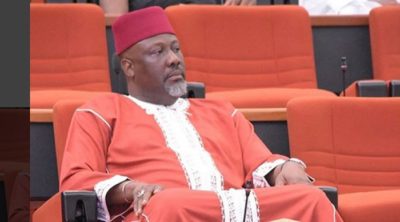By KEMI KASUMU
“The provision, particularly provision of subsection 1 of section 38, guarantees freedom therein contained to the appellants and all students admitted to schools under focus. Every person has a right to conduct himself in a manner permitted by his religious calling, but the provision does not permit any person under the guise of propagating his religion to impose his beliefs on another person who does not belong to the same religious calling with him.” – Extract from Court of Appeal judgement delivered on 20 September, 2019.
With resolve last year 2021 by a circular from the Kwara State Government, it was naturally thought that the Pastor Samson Ayokunle-led Christian Association of Nigeria (CAN)’s issues against both the state government and female Muslim students wearing hijab in some of the state’s public schools had finally closed.
The government’s circular was predicated on the facts of two courts’ judgement which were instituted by the CAN first at the high court followed by Court of Appeal and which were delivered against the plaintiffs and in favour of the defendants.
The DEFENDER reports that the first judgement was delivered at the High Court of Justice of Kwara State via suit No. KWS/178/2014 while the second was at the Court of Appeal on Thursday, the 20th day of September, 2019.
The judgements against the Christian Association of Nigeria, much subsisting as they were and remain, mattered not to the religious body as it went ahead mobilising violent attacks, which led substantively to breakdown of law and order and government’s subsequently shutting down of ten schools the CAN claimed to own and not to allow hijab wearing female Muslim students in.
The CAN leadership, earlier before finally taking the law into their hands, had disobeyed the decisions of the Court of Appeal delivered in 2019, flared up and resumed its crisis molesting Muslim students who wore hijab, pushing and locking them out of the schools.
The resumed Islamaphobia and attendant CAN-led violence led to the measure that was taken and, despite having the instrumentality of the law to cut the CAN to size, the state government took a reconciliation path, at the end of which both Christian and Muslim sides reached agreed to comply with the rule of law and case closed.
In implementing the courts’ judgements, particularly those decisions of the Court of Appeal, having held the reconciliation meetings, the Governor Abdulrahman Abdulrazaq’s Administration sent out a circular mid-2021 for the notice of all schools.
The circular was received by all the schools including the grant-aided ones being claimed by the Christian body, thereby making the ownership clear and sounding a clear order that anyone, who bans hijab or persecutes any student for wearing hijab in the public schools henceforth commits illegality and will be dealt with under the law.
That was where the matter stands and the judgements of the court have since become fully enforced until January 2022 when the Christian Association of Nigeria, again this time around, shifted its battle ground to Oyun Baptist Grammar School, Ijagbo, Kwara State where it caused the management employed by government to persecute female Muslim students wearing hijab, throw and lock them out of the gate.
The actions in Ijagbo naturally provoked the Muslims but, instead of taking the law into their hands, they reported the excesses of Christian Association of Nigeria to the state governor and when the governor failed to act, the Muslims, students and parents, resorted to peaceful protest on Thursday 3 February, 2022, during which thugs allegedly hired by the Christian leadership shot into the crowd killing one student, Habeeb Idris, and injuring several others.
Governor Abdulrazaq, however, finally acted when he saw the loss of life by the CAN’s thugs and shutdown the school. The Muslim Rights Concern (MURIC) had last Saturday 5 February complained that there had been no arrest of any culprit, 48 hours after the gruesome murder of the schoolboy, and accused the Nigerian Police Force, Kwara State Command, of foot-dragging over the wicked activities of supposedly religious body called Christian Association of Nigeria.
The CAN later issued a press statement in which it merely asked Nigerians to hold the Kwara State Government responsible for the killing of the innocent schoolboy. It did not deny knowledge of the murder, however, as he said neither was there was any court judgement saying the schools in contest are owned by government nor that female Muslim students can wear hijab in the schools.
“How the Christian Association of Nigeria’s leaders go scot-free after inciting, motivating and sponsoring violence and killings only for them to be the first to shout of their rights being infringed upon and the Nigerian Police watches and does nothing is not worrisome. What it only means to me is that, there is an official effort, either by government or security agency, to encourage a breakdown of law and order because, there will soon be a limit to the patience of Muslims in parts where CAN leaders cause the evils in Nigeria,” an apparently angry Muslim said.
He added, citing how the CAN leadership wrote a letter to President Muhammadu Buhari, telling him that the five youths, sentenced to death by a Yola high court for killing a Fulani man and throwing his body in the mud, should be killed because they are Christian youths. He also cited how CAN leadership, which always portrays NIgerian Muslims as having things in common with BOko Haram terrorism, tried hard to cover up the case of a pastor arrested with explosives trying to bomb a Winners Chapel’s Sunday church service in Kaduna.
Amidst the fresh crisis, the CAN leadership, we learnt, had gone to Supreme Court, which many said has compounded its case because, the Pastor Ayokunle-led Christian body should not have taken the law into its hand going into the extreme, killing innocent schoolboy against its usual denial of Christian terrorism in Nigeria. This has been counted as one and yet another blood stain on the hands of CAN with many such killings of Muslims they boldly and publicly promoted in the Plateau.
Amidst its denial of any court judgement on the ownership of the schools and hijab wearing therein, a copy of the Court of Appeal judgement delivered in 2019 has been dug out as published in The Nation of Newspaper of 23 March, 2021.
“The control and management of those identified schools, in their own way, by the appellants in line with their Christian beliefs and value, not minding the heterogeneous nature of those schools, smacks discriminatory.” – Extract from Court of Appeal judgement delivered on 20 September, 2019.
Read the Court of Appeal judgment on the Kwara’s CAN crisis below:
Incorporated Trustees of Christian Association of Nigeria & Ors V. Kwara State Government & Ors
Citation: LOR (20/09/2019) CA
In The Court of Appeal of Nigeria
On Thursday, the 20th day of September, 2019
CA/IL/108/2016
Before Their Lordships
MOJEED ADEKUNLE OWOADE, Justice of The Court of Appeal of Nigeria
SA’IDU TANKO HUSSEIN, Justice of The Court of Appeal of Nigeria
HAMMA AKAWU BARKA, Justice of The Court of Appeal of Nigeria
MISITURA OMODERE BOLAJI-YUSUF, Justice of The Court of Appeal of Nigeria
BOLOUKUROMO MOSES UGO, Justice of The Court of Appeal of Nigeria
Leading judgment delivered by HUSSEIN, J.C.A.
This appeal is against the two decisions delivered at the High Court of Justice of Kwara State via suit No. KWS/178/2014 in which the appellants herein were the plaintiffs or claimants and the respondents, the defendants before that court.
The questions earmarked for determination bordered on the validity and constitutionality of government’s continued control and management of schools, the subject matter of the claim; grants in aid to those schools, handover, management and control of the schools under the Kwara State Education Law of 2006 as well as claim for damages and compensation for infringement of the rights of the appellants.
RELIEFS SOUGHT BY APPELLANTS
Appellants sought 10 reliefs, including:-
(1) A declaration that the claimants have and reserve the Constitutional rights to establish and own schools for the purpose of educating people in conformity with their religion and Christian faith.
(2) A declaration that by virtue of the resolution reached between the claimants and the 2nd defendant at a meeting held on the 23rd of May, 2014 and their subsequent letters to the 2nd defendant dated the 20thAugust, 2014, and 9th September, 2014 the defendants are not entitled to continue to manage and control the claimants’ over 150 schools in Kwara State, to wit: admission of pupils, recruitment and maintenance (teaching and non-teaching) of staff of the school.
(3)A declaration that “grant-in-aid” as envisaged by the Kwara State Education Law of 2006 is not synonymous with ownership, management and control of the claimants’ over 150 primary and secondary schools being grant-aided by the defendants.
(4) A declaration that the claimants are entitled to the exclusive control and management of their primary and secondary schools without the input and/or grant-in-aid by the defendants, with effect from 2014/2015 academic year.
(5)A mandatory order compelling the defendants to cease further control and management of the claimants’ grants-in-aid primary and Secondary schools in Kwara State.
(6)An order of perpetual injunction restraining the defendants either by themselves or through their agents, organs, servants, privies and whomsoever from further management and control of the claimants’ grants-in-aid primary and secondary schools in Kwara State.
APPELLANTS’ SUBMISSIONS
The case for the appellants, put briefly is that they are the owners of the over 150 schools, the subject-matter of the claim, having established same as deposed to at paragraph 13 of the affidavit in support of the amended originating summons but that the 1st – 3rd respondents took over the schools under the cover of government grants-in-aid and have since then exerted control and management of the claimed schools to the discomfiture of the appellants, in that policies and practices inimical to the Christian doctrine were introduced to those schools by the government. Attempts made by the appellants to take control and management of the said schools by the appellants were rebuffed in utter disregard to rights available to them under section 38 of the Constitution of Federal Republic of Nigeria 1999 (as amended) which allowed them to run the claimed schools in accordance with Christian religious beliefs and practices. The appellant also took the view that the Kwara State Education Law did not empower government as represented by the1st – 3rd respondents to take over, the control and management of the claimed schools, notwithstanding that the schools received grants from government.
RESPONDENTS’ SUBMISSIONS
The 1st – 3rd respondents contend otherwise relying heavily on Kwara State Education Law of 2006, Kwara State Compulsory Free Universal Basic Education Law, the Constitution of Federal Republic of Nigeria 1999 (as amended), to contend that the 1st – 3rd respondents not only have the power of control and management of the claimed schools but the control and management of those schools by them (1st – 3rd respondent) do not impact negatively on the constitutional rights of the appellants.
The 14th – 15th respondents were not parties at the inception of the suit at the trial court but by the order of the court granted on the 1st February, 2016, the 14th and 15th respondents were joined as parties to the suit. See the record of appeal at pages 363-364. The ruling of court did not however go down well with the appellants, hence the interlocutory appeal against that ruling.
The 4th – 13th respondents had before then been joined as parties to the suit. Although no brief of argument has been filed on behalf of the 4th – 13th respondents, facts available on the record, reveal the grudge the 4th – 13th respondents have against the claim of the appellants. Their contention is that the claim of the appellants in relation to the schools was discriminatory of them and their members who are not adherents of the Christian religion practiced by the appellants, hence they (4th – 13th respondents) are all out to contest the suit on this account.
The case of the 14th – 15th respondents is predicated on the ownership of the land on which the schools in dispute were built. To them the land on which those schools were built originally belong to their families and that the lands were granted to the appellants through request presented to them by the then government, for educational development for all and sundry hence the appellants cannot now claim ownership of the land and convert the usage to propagate appellant’s religious beliefs only to the detriment of the community which granted the land, whereas the grants were made for the purpose of building Public Institutions.
RESOLUTION OF ISSUES
With the introduction to schools grant in aid programme by government, sometime in 1974, there was the clamour from various religious denominations including the 3rd- 11th appellants requesting the 1st – 3rd respondents to take over the schools established by them in order to enjoy the grant in aid programme. Exhibits MOJ 1(a) and though much recent by their instant, it nonetheless typifies those clamour at that time, in the early 1974.
Government thus, confronted as it were, with huge requests coming from organisations such as the 3rd – 11th appellants, must find a way of regulating the affairs of those schools, so voluntarily surrendered to government as represented by the 1st – 3rd respondents. The surrender of those schools by the 3rd – 11th appellants was not shown to have been made under any condition…
Government nonetheless came in to promulgate the Kwara State Education Law of 1974. The law has since then been reviewed a lot of times. The extant or the existing law on this point is the Kwara State Education Law of 2006….
…In any case all the hullaballoo surrounding the question whether the identified schools are “public schools” has been laid to rest by the definition of that term at section 41 of the Kwara State Compulsory Free Universal Basic Education Law to mean “A school which is assisted out of funds provided by the Federal or State or Local Government”,
The appellants are not disputing the fact that the over 150 schools identified by them are beneficiaries of government grant, an arrangement whereby the 1st and 3rd respondents provide grants-in-aid for the affected schools, give regulations on the academic and administrative activities/programmes of the schools, recruit, post and transfer staff, pay salaries, allowances, benefits and other emoluments of staff of the schools, build class rooms, provide infrastructures and facilities for the schools, hence the affected schools in the light of all these are under the control and management of government as represented by the 1st and 3rd respondents, they are “public’ not “private” schools or institutions and this arrangement has subsisted over the years, since 1974 under a law known as the Education Law of Kwara State. The law has been reviewed a couple of times…
I am not unaware of the submissions made by the appellants in this regard through learned counsel representing them. To them the introduction of certain policies to the schools under focus by government: such as the conversion of classrooms into mosques, the “flooding” of these schools with Islamic Teachers, the wearing of Hijab by female students and pupils among others, are policies or acts which are antithetical to Christian doctrines and values upon which the schools were established by the owners i.e. the appellants and for which reason there was an infraction of appellants’ rights to run, manage and propagate the Christian religion and values as guaranteed under section 38 of the Constitution of the Federal Republic of Nigeria, 1999 (as amended). Mention was also made of section 44 of the same Constitution.
…Section 38 guarantees the right to freedom of thought, conscience and religion. A person or all persons are free to practice their religion without let or hindrance either in the public or private. This freedom of worship includes freedom of the individual to change his religion if he so desires. The person reserves the right to manifest and propagate his religion or belief in worship, teaching, practice and observance.
The provision, particularly provision of subsection 1 of section 38, guarantees freedom therein contained to the appellants and all students admitted to schools under focus. Every person has a right to conduct himself in a manner permitted by his religious calling, but the provision does not permit any person under the guise of propagating his religion to impose his beliefs on another person who does not belong to the same religious calling with him.
The appellants have by no means alleged the restriction of Christian students from the practice of their religion or that Christian students were prohibited by 1st – 3rd respondents from the practice of their religion by reason of the control exerted by them in the management of the affairs of those schools. If that were the case, their grievance would have been understood as genuine. This is not the case. Rather it is the appellants, who are not happy to see the 1st – 3rd respondents continue to allow certain policies being introduced to those schools. They failed to realise that the schools under focus, some of which are co-educational, multi-ethnic and co-religious institutions, have been run or managed as such public institutions for well over a period of 40 years.
The control and management of those identified schools, in their own way, by the appellants in line with their Christian beliefs and value, not minding the heterogeneous nature of those schools, smacks discriminatory.
The constitution under S. 42(1) prohibits those tendencies which the appellants want to bring to bear. Section 38(2) also forbids it. It sounds rather ironic to me that the appellants who cry foul and shouted to high heavens that their rights to freedom of thought, conscience and religion had been violated, are the same group who are hell bent to unleash their own practices on other people who are not of the same religious inclination.
The appellants see the wearing of Hijab by students of the schools under focus as provoking enough and an insult in school or institution established to practice Christian religious doctrines.
There is no evidence coming from them on record as would suggest that Christian female students were compelled to wear the Hijab. The Hijab, the practice, where Moslem female cover their heads with veil or head cover, is an act of Ibada or worship as recognized in the Islamic religious worship. This act or practice is also in tune with the Constitution of the Federal Republic of Nigeria, 1999 (as amended).
The appellants thus have no right to complain of acts which do not impugn on them.
The submission made on behalf of the appellants that section 38(3) of the Constitution allow them or give them the exclusive right to make Christianity the only norm in the schools under focus is only wishful thinking. Such is not tenable in a heterogeneous set-up such as the schools under focus where students and pupils alike do not belong to the same religious community or denomination. Students and pupils of those schools came from different backgrounds and so there is no semblance of homogeneity amongst these students as to permit the imposition of the practice, the appellants have in mind over those schools.
In Esabunor v. Faweya (2008) 12 NWLR (Pt. 1102) 794, 870 the court held that every student must be given the right to choose the course of his/her life fashioned on what he/she believes in and reserve the right not to be coerced into acting contrary to one’s religious beliefs. There is no evidence on the printed record that the1st – 3rd respondents have coerced the appellants or students of the schools in focus into acting contrary to their religious beliefs.
The issue raised by the appellants pertaining to compensation, not having been paid to them, as required under S. 44(1) of the Constitution, meant that they are still the owners of all the schools under focus. This does not arise. Since there is no evidence of compulsory takeover of the schools in dispute, the issue of compensation cannot arise. On the contrary, facts and evidence do indicate that the takeover of the schools in focus were in line with due process, the Kwara State Education Law No.6 of 2006, the Constitution of Federal Republic of Nigeria, 1999 (as amended),and the National Policy on Education. Accordingly, issue Nos. 3and 4 are also resolved in favour of the 1st – 3rd respondents and against the appellants.
HELD
On the whole, the appeal was dismissed and the ruling of the lower Court was affirmed.
Representation
Akinola O. Akintoye, Esq. (with him, Josiah Adebayo, Esq. and Gbenga Oyewale, Esq.) – for the Appellants
A. Oniye, Esq., Chief State Counsel (with him, A. M. Bello, Esq. (CSC); A. B. Nuhu, Esq. (CSC); G. R. Moyosore, Esq. PSC; M. J. Orire, Esq. PSC; A. A. Akewukewe, Esq.) – for the 1st – 3rd Respondents
Prof. I. A. Abikan, Esq. (with him, M. G. Alaiya, Esq., Ahmed Mustapha, Esq. and R. A. Hassan [Mrs.]) – for the 14th and 15th Respondents.




